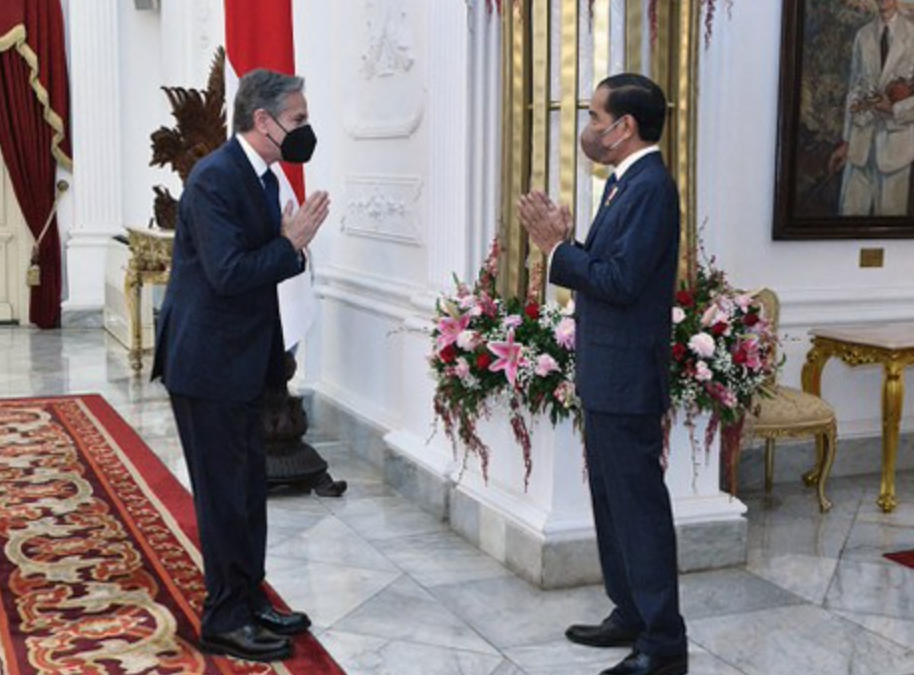Blinken Starts Maiden SE Asia Tour, Promises Stronger Economic Ties With Indonesia
U.S. Secretary of State Antony Blinken vowed to strengthen American economic ties with Indonesia and boost infrastructure investment in the country after he arrived in Jakarta on Monday to start his first tour of Southeast Asia as Washington’s top diplomat.
His trip to the region comes on the heels of tours by several other senior American officials, and will include stops in Kuala Lumpur and Bangkok, as Washington tries to match an increasingly assertive China in its economic and geopolitical influence in the Indo-Pacific.
During talks in Jakarta with Indonesian President Joko “Jokowi” Widodo on Monday, the two discussed strengthening their “strategic partnership,” Indonesian Foreign Minister Retno Marsudi said.
“It’s clear the United States is committed to strengthening its partnership with Indonesia, including in the economic sector,” said Indonesian Foreign Minister Retno Marsudi, who was scheduled to meet with Blinken on Tuesday.
Retno said Jokowi wanted to make Indonesia part of the global supply chain in the health sector, to which Blinken responded positively.
“Secretary Blinken also expressed his commitment to partner with Indonesia in the area of infrastructure investment,” she told a news conference, without elaborating.
The United States has a fair bit of catching up to do on trade with the member-states of the Association of Southeast Asian nations (ASEAN). In recent months, the Biden administration has sent U.S. Trade Representative Katherine Tai and Commerce Secretary Raimondo to the region.
Total U.S. trade with ASEAN was $135 billion, to China $40 billion. Twenty years later, in 2020, China’s trade with ASEAN was $685 billion to Washington’s $362 billion.
Kishore Mahubani, an author and scholar, noted in an article for Foreign Policy that “submarines are stealthy, but trade is stealthier.”
“Both generate security – the former by deterrence, the latter by interdependence. But the kind of security created by trade lasts longer,” said the distinguished fellow at the National University of Singapore’s Asia Research Institute.
Complete article HERE.


Recent Comments